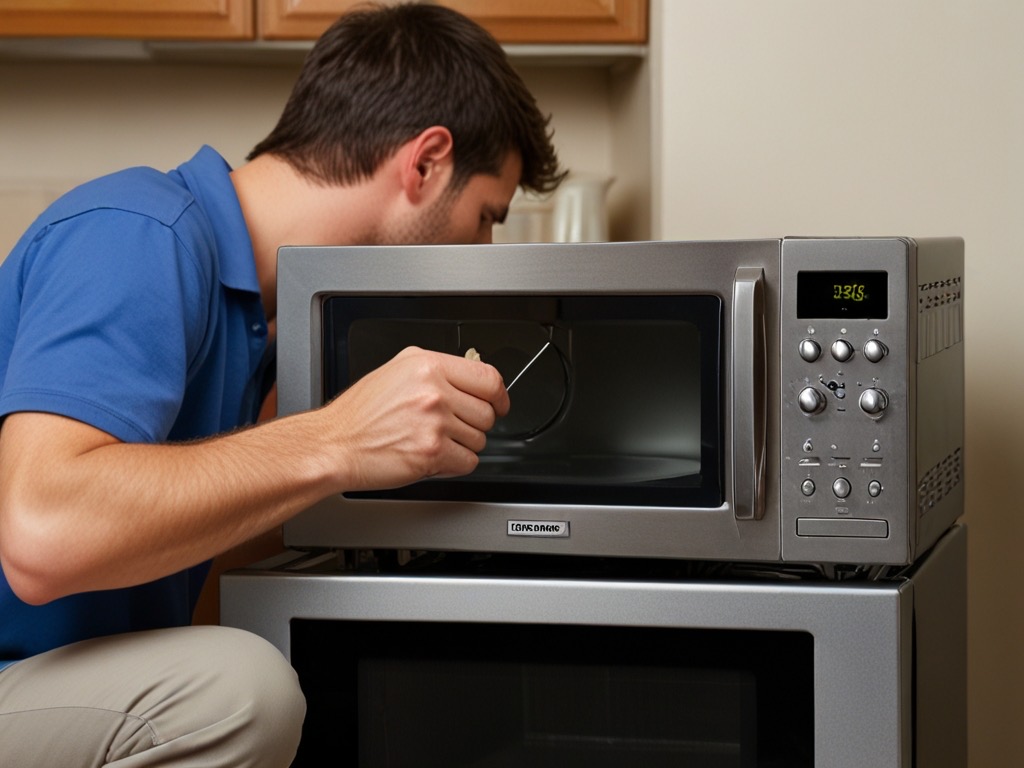Microwave ovens have revolutionized the way we cook and reheat food, making meal preparation faster and more convenient. However, like any kitchen appliance, microwaves come with their own set of safety guidelines that must be followed to prevent accidents. Whether you’re a seasoned cook or a microwave novice, understanding these rules is essential for safe and effective use.
Understanding Microwave Oven Safety
Microwave ovens cook food using electromagnetic radiation, specifically in the microwave spectrum. These waves cause water molecules in the food to vibrate, generating heat and cooking the food. While this method is quick and efficient, improper use can lead to hazards such as fires, explosions, and burns.
Key Safety Rules for Using a Microwave Oven
- Read the Manual:
Every microwave model has specific instructions and safety guidelines. Always start by reading the manufacturer’s manual to understand the features and limitations of your microwave.
⠀
- Use Microwave-Safe Containers:
Only use containers labeled as microwave-safe. Avoid using metal containers, aluminum foil, or dishes with metallic trims, as these can cause sparks and potentially start a fire. Plastic containers should also be avoided unless they are specifically designed for microwave use, as some plastics can melt or release harmful chemicals when heated.
⠀
- Avoid Superheating Liquids:
When heating water or other liquids, there’s a risk of superheating, where the liquid is heated beyond its boiling point without actually boiling. This can cause the liquid to explode suddenly. To prevent this, stir the liquid before heating and use a container with a wide opening.
⠀
- Cover Food Properly:
Covering food helps to prevent splatters and promotes even heating. Use microwave-safe lids or plastic wrap with small vents to allow steam to escape. Avoid sealing containers completely as the pressure build-up can cause them to burst.
⠀
- Pierce Foods with Skins:
Foods with skins, such as potatoes, hot dogs, or eggs, can explode if cooked whole in a microwave due to steam build-up inside. Always pierce these foods with a fork or knife to allow steam to escape during cooking.
⠀
- Be Cautious with Foods that Pop:
Popcorn and similar foods that expand rapidly can cause accidents if not monitored. Use only microwave-safe popcorn bags and follow the recommended cooking times closely to avoid burning.
⠀
- Preventing Burns:
The contents of microwaved food can become extremely hot. Use oven mitts when removing items, and allow food to stand for a few moments after cooking to distribute heat evenly. Be particularly cautious with foods that have high moisture content as they can retain heat longer.
⠀
- Avoid Running an Empty Microwave:
Running a microwave without any food or liquid inside can cause the appliance to overheat and potentially damage the magnetron (the component that generates microwaves). Always ensure there’s something in the microwave when it’s turned on.
⠀
- Inspect Your Microwave Regularly:
Check the microwave door and seals for any damage. A compromised door can leak radiation, which is harmful. If you notice any damage, stop using the microwave and have it inspected or repaired by a professional.
Common Microwave Hazards and How to Prevent Them
- Fires:
The leading cause of microwave fires is using inappropriate materials inside the microwave. Always use microwave-safe materials and never leave the microwave unattended while in use. If a fire does occur, keep the microwave door closed to contain the flames and unplug the appliance immediately.
⠀
- Explosions:
This typically happens with foods that have a high moisture content or are sealed too tightly. Always pierce foods with skins and avoid tightly sealed containers to allow steam to escape.
⠀
- Burns:
Burns are common from hot containers or food. Use oven mitts and handle with care. Stirring food during and after heating can also help distribute heat evenly and prevent hotspots that can cause burns.
Maintenance and Professional Servicing
Regular maintenance of your microwave is essential to keep it functioning safely and efficiently. Keep the interior clean to prevent food buildup, which can absorb energy and cause hotspots. Periodically check the door and seals for any signs of wear and tear.
When issues arise that are beyond simple maintenance, it’s time to call in the experts. Whether it’s a faulty door seal, unusual noises, or inconsistent heating, professional servicing ensures your microwave operates safely.
Microwaves are indispensable tools in modern kitchens, providing quick and efficient cooking solutions. By following these safety rules and guidelines, you can prevent accidents and enjoy the convenience they offer. For any repairs or maintenance, trust the professionals to keep your microwave in top condition.
For expert microwave repair and maintenance services, contact HOME APPLIANCE SERVICE CENTER. Our skilled technicians ensure your appliances are safe and operational. Keep your kitchen running smoothly and safely with our trusted service.
Contact us
 619-928-5000
619-928-5000  Request Service
Request Service 
